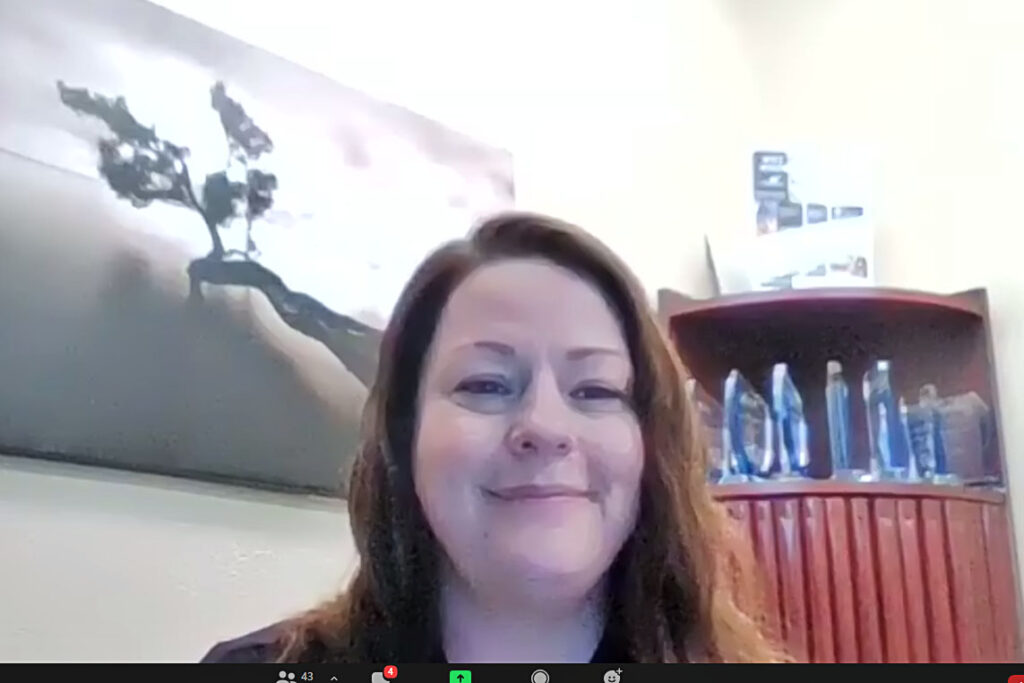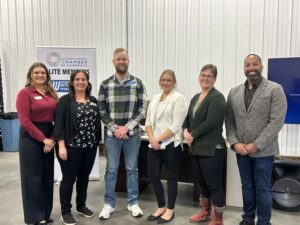On Wednesday, May 5, the Business Resiliency Forum aired virtually for residents and business owners to hear about supports during the pandemic. The forum featured numerous speakers, including the Whitecourt Chamber of Commerce, Business Development Bank of Canada, Community Futures Yellowhead East, Careers: The Next Generation, and Municipal Supports.
Multiple opportunities available through the Government of Alberta came up, such as the Critical Worker Benefit, Jobs Now Program, Truck Driver Training Funding, Canada Alberta Job Grant, and the Enhanced COVID-19 Business Benefit. Likewise, through the Government of Canada, programs that offer relief were mentioned, including the Magnet Student Work Placement Program.
Community Futures Yellowhead East (CFYE) presented their findings from a COVID-19 Business Impact Analysis Study completed in the region. After partnering on a similar study that focused on Whitecourt businesses, CFYE felt they needed to survey regional enterprises to see the greater scope of impacts from the pandemic. “We reached out directly to small business owners to hear firsthand what they were experiencing to determine how we can best continue to provide supports to small businesses in our region. Ballad Group engaged with businesses in both Yellowhead East and Lesser Slave Lake regions on behalf of Community Futures,” explained Michelle Jones, Executive Director for CFYE.
Ballad Group asked about the businesses’ current economic situation after multiple lockdowns, their expectations for recovery and outlook for the post-pandemic period, and the challenges facing companies and barriers to longer-term growth. “We have confirmed that the pandemic, of course, has produced widespread signs of stress in both the business community and labour markets. Businesses experienced reduced profits, supply chain issues, and widespread uptake of provided supports. For the labour market, of course, seeing higher unemployment rates, reduced hours of employment, and uncertain recovery,” explained Jones.
Of the businesses interviewed in the study, 65 percent said that their sales had declined. “The effects on business profitability and viability have been severe. Twenty-five percent of the businesses interviewed are still expressing a risk of closure as being high or moderate.” Some businesses doing well often share similar attributes with those not doing well because their success is from pandemic-caused spending. They could be benefiting from robust in-province spending, stable demand in essential services, a successful pivot to online sales, new products that fit current needs, and finding new markets.
“One of the areas that we felt was extremely unsettling, and something that we plan to work on is the fact that public funds have been essential to survival in many of small business cases. However, some businesses are going to struggle with repaying that. So, 54 percent of the businesses interviewed indicated that they felt they would be fine making repayment when it came time, while 46 percent of those businesses interviewed still indicate that they have not given any thought at all to future repayment as right now they are just focused on today and tomorrow,” said Jones.
Supports for business cash flow and business operations and new initiatives were two recommendations to help overcome short-term challenges. Addressing the pandemic legacies and longer-term barriers was also recommended. “Municipalities are encouraged to adopt a collaborative approach on economic development, provide a single point of contact for investors and entrepreneurs looking at the region, and to create working groups to address common issues, and explore potential collaboration.”
Jones said the feedback they received from small businesses in the study led CFYE to develop a Regional Business Resilience & Diversification Partnership Initiative Fund. Municipalities can apply to partner with them in providing supports to small and medium enterprises and non-profit organizations within CFYE’s region.
The Town of Whitecourt already applied and was approved for the fund. Economic Development Officer Rhonda Hough said that her office encourages businesses to look through the program and reach out with any questions. “It is open for applications now. Even if you are not sure if you qualify, we would be happy to brainstorm some ideas with you. Any projects that were completed as of January this year are eligible.” Hough said the town also has a new Economic Grant Program to provide support too. “If you are building a patio, pivoting your business plan, or purchasing new equipment to better serve your business as a result of the pandemic, there is a municipal grant program to support your initiatives.”
Hough also explained to attendees that her office could provide support for provincial and federal programs. “It’s a lot of information to absorb. If you have any troubles or you need a contact or connection, please, please, please reach out. Whitecourt Town Council has waived our permit fees for the rest of 2021 for permitted uses, and Planning & Development is working with businesses developing temporary patios and outdoor retail spaces. There is no charge there at all. With the recent restrictions, I know this could be challenging, but if businesses are interested in creating new space or developing a patio, I encourage you to reach out. When the restrictions lift, it would be good to get this in place now.” She said those interested could email planning@whitecourt.ca.
The free forum ended with keynote speaker Michelle Cederberg who brought a humorous message of hope to attendees. “I want you to think about all the things that you had to get through and are still navigating. Because here is the interesting thing, even though we are over a year in this (pandemic), if I’m honest, it’s tougher now than it was back then (when it first started). None of us would have ever imagined that we would still be covid-restricted over a year later.”
The published author and motivational speaker spoke about success and said that everyone defines the word differently. “For every single one of us, the definition is going to be completely different. It is your version of happy, healthy, and financially stress-free. If you were going to create your version of success now, in the midst of an ongoing pandemic, what would that look like for the future and post-pandemic living? For myself, it has absolutely changed in the last twelve months. I have realized I can live on less because I’ve had to. I have realized that I value my health even more because excessive COVID bread and COVID wine had an impact on my health in the early months,” she laughed. Throughout her hour-long chat, Cederberg engaged attendees on finding a work-life balance, finding calm in a crazy world, and dealing with pandemic uncertainty.








More Stories
Incoming and outgoing Chamber presidents speak of community pride and hope for the future
Growing Kyle’s Superhero Night to help more people
A win and a loss for the year’s first two home games at JDA Place